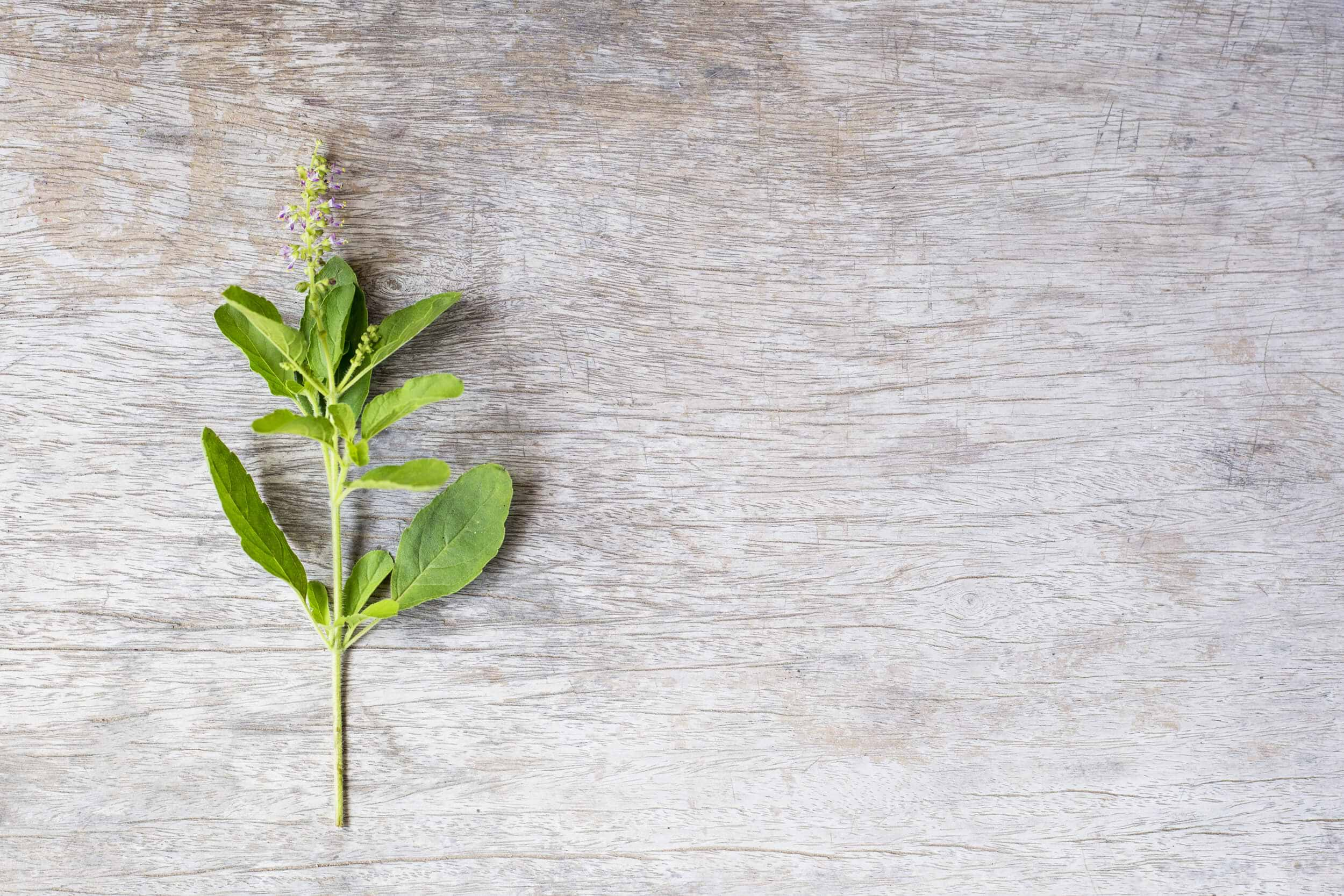Welcome to thoughtful, organic beauty
Hello Joyous is an organic, plant-based, sustainable beauty brand here to bring more joy to your day.
Admittedly, I can be a bit of a stress ball. I've always had a worry-wort side to me as part of my [recovering] Type A personality. But the fact that I know this about myself actually makes managing stress easier. Once we know our tendencies, triggers and coping mechanisms, we can develop realistic strategies to optimize ourselves and reach our greatest potential!
A lot of people simply live with their stress and view it as a part of themselves, much like I did, until it led me to my first of many panic attacks and anxiety. But as we've been seeing more and more frequently, stress has actually become an epidemic and is a major contributor to illness and disease. It has actually been shown to lead to tumour development and suppress our natural killer (NK) cells, making us more susceptible to infections or sickness. It's important that we're doing everything we can from a lifestyle and nutritional perspective to keep stress at bay. Doing so can prevent the development or progression of various ailments including chronic fatigue, irritable bowel syndrome, hair loss, insomnia, heart disease and eczema.

When it comes to reducing stress and cortisol, a lot of the tangible results come down to managing lifestyle factors such as implementing deep breathing practices (I refer to this a lot!), massage (I need to do more of this!), stretching, yoga, exercise and meditation. But there's actually a lot we can do from a nutritional standpoint which involves some beautiful herbs that I've become good friends with known (and no, it's not that green stuff you're thinking of), but instead, I'm referring to adaptogens!
What are adaptogens?
Adaptogens are natural substances derived from plants or botanicals that help the body adapt to stress (hence the name "adapt-ogens") and project a normalizing effect on bodily processes. Their properties are known to have a direct effect on the adrenal glands, an integral part of the endocrine system, that secrete stress-coping hormones such as cortisol, adrenaline (epinephrine), norepinephrine and dopamine. When we are constantly in our "fight or flight" stress mode, we are constantly releasing these various hormones to help us cope with stress. Over time, if we find ourselves in this elevated state more often than not, we may find ourselves at a point of chronic fatigue or burn out, characterized by the inability to get out of bed in the morning or to cope with stressful situations.
If we picture "healthy" adrenal glands as little plush grapes that sit on top of our kidneys, unhealthy or depleted adrenal glands are more so like shriveled up raisins that are barely hanging on, just struggling to release our stress-coping hormones.
This is where adaptogens come in, all mighty, vibrant and replenishing!
While adaptogens are plant-derived, the potency of botanicals shouldn't be underestimated. They can actually be quite powerful and stimulating! That's part of the reason why it's best to consume adaptogenic herbs in the morning and approach new herbs with care and caution. On the plus side, those that do incorporate adaptogens into their life usually feel the relieving effects right away due to their potency (I can speak from experience on this one).
There are a lot of adaptogenic herbs out there which can be taken in the form of a tea, supplement or tincture. All methods are effective, it really just depends on which form will encourage you to be the most compliant. I know for me, making a tea every day isn't always realistic and with the good handful of supplements I already take, a tincture ensures I'll stick to the plan set out for me (but be prepared to plug your nose – it's one of those "tastes awful, but it works" remedies).
Through my studies as a holistic nutritionist and experience as a stress-ball, I've come to know various adaptogens rather well. So I thought I would highlight some of my favourites, their properties and some of the best ways to enjoy them!
Adaptogenic Herbs
Holy Basil

Holy Basil is a good friend of a herb you've likely already tried (and perhaps love) – mint! It's said to help combat chronic fatigue, stress, boost your immune system (which typically gets depleted as a result of stress), regulate blood sugar, blood pressure and your hormones. It also has a mild anti-inflammatory action which will help to level out the pro-inflammatory effects of stress. Since holy basil is a blood thinner, you'll want to exercise extra caution if you happen to be pregnant, breastfeeding or on blood thinning medications before consuming it. Unlike many adaptogenic herbs, holy basil actually comes with a pleasant taste so if you're more of a tea-drinker or enjoy elixirs, you'll get along just fine with holy basil!
AshwagandhA
You'll typically find ashwagandha in most adrenal supportive supplements not only for its stress-reducing effects, but it's immune-boosting properties. Ashwagandha is also very effective when it comes to lowering cortisol levels (see ya later stress!). Studies show that it also plays a huge role in managing anxiety, stress and depression. It's versatility as an adaptogenic, anti-cancer and anti-inflammatory herb explains why it has been used for over 3000 years especially in Ayurveda which is a form of alternative medicine based on Indian principles of natural healing. Funny enough, "ashwagandha" is actually Sanskrit for "smell of the horse" which addresses its unique smell and ability to increase strength in the body overall.
Ginseng
You're looking at the powerhouse of adaptogens – ginseng! This herb does it all, from increasing mood, decreasing stress, improving mental function, alleviating sexual dysfunction and especially, boosting immunity. This is so crucial because the minute our immune system begins to suffer, we start to feel the oncoming of symptoms. Ginseng, on the other hand, provides support for the immune system by regulating our immune cells including macrophages, natural killer (NK) cells, dendritic cells, T cells and B cells. If that's a bunch of gibberish to you, it essentially means that ginseng protects the integrity of the immune system and enhances the resilience of it against harmful infections and diseases. Super important knowing that there is such a strong link to stress and disease nowadays!
Licorice
Before you reach for your nibs, Twizzlers or even the black licorice (I've never been a fan!), hang tight because we're talking about the different, whole foods based form of licorice! This licorice looks like twigs or a small tree branch and is best known for helping to regulate and lower cortisol which is our main stress hormone. It also has a soothing effect on the gut, which is of extra importance given that stress degrades our microbiome and overall gut health, so it will prevent ailments such as leaky gut which commonly stems from poor diet and stress. This herb also comes in a naturally nice tasting flavour, but you'll usually find it in supplement form. Just be careful before picking up supplements containing licorice if you have high blood pressure or pre-existing heart issues as there is a substance known as glycyrrhiza in licorice which can cause complications. You can easily purchase de-glycyrrhizinated licorice (DGL) though which will still have the beneficial adaptogenic effects, without the glycyrrhiza. As an added bonus, licorice can also be used topically in an ointment to aid in inflammatory skin conditions such aseczema which has a strong link to stress.
Reishi Mushrooms
Mushrooms are all the rage these days (again – not that kind!) and for good reason too! Reishi has been used for thousands of years in Chinese Medicine and has just started to make its way into Western culture over the past several years for its incredible immune boosting and stress-lowering effects. It's said to contain 400 different bioactive compounds that support the regulation of the immune system and are anti-inflammatory, sleep-promoting, anti-tumour, antibacterial and anti-aging.
On a daily basis, reishi can help to keep stress at bay. However, in unique situations such as with breast cancer patients, reishi has been shown to reduce anxiety and depression and alternatively, improve quality of life. The group of patients that did not receive reishi did not reap such effects. Surprisingly, reishi doesn't come with the most terrible taste either. A group of Finnish guys came together to form a company called Four Sigmatic, which formulate delicious soothing blends of medicinal mushroom teas (the Mushroom Hot Cacao with Reishi is my favourite!). This is a great opportunity to swap your daily coffee (which has been shown to have negative effects on adrenal health) with a reishi/medicinal mushroom-based bevy or even a Dandy Blend Latte!
Now hopefully all of that information didn't induce any more stress than you might already be experiencing. From one stress-ball to another, just note that if you are suffering from stress, it is so incredibly worth it to take action on reducing it. Once you have stress under control, you'll find all other areas of your life come to you with more ease including your relationships, friendships, work/life balance, digestion or inflammation-related ailments. Again, I speak from experience on that front.
You have the opportunity to enhance your overall health simply by managing stress.
If you're still not sure if adaptogens are for you, this little guide below may help you out. If you align with more than 2-3 of the below, it's probably a good time to consider introducing adaptogens into your life as well as stress-supportive nutrients and lifestyle factors as well.
You might want to consider taking adaptogens if:
What are your best tips for keeping stress at bay?
Please note that some adaptogens may interact with medications. Please consult with your natural health care practitioner before integrating adaptogens into your health regime.
Is there one powerhouse product, supplement, tea etc... you would recommend?
ReplyHey Becki, I find NFH's Adrenal SAP works really well from my experience with clients and with myself. Hope that helps :) Rachel - Joyous Health Team
I have been on NFH Adrenal SAP for 2 months now as prescribed by my Naturopath and have been feeling great! Along with diet and lifestyle changes it is a good combo.
That's amazing! Yes, it works great with lifestyle and diet changes as well :) Happy to hear you're feeling so good!
Would you typically pick these up in a health food store? Thanks :)
ReplyHey Lindsey, Yes, you can usually find teas or supplements that contain adaptogens. If you live in Toronto, Herbie's Herbs on Queen St W is a great place to find these herbs in their loose leaf form. Hope that helps :) Rachel - Joyous Helath Team
Lovely recipes
ReplyHey John, Thank you so much! Rachel - Joyous Health Team
Is there a supplement in the form of a pill or powder that you recommend?
ReplyFor which particular adaptogen are you asking about?
Is there a product that contains some or all of the ones you have mentioned in this blog post?
ReplyCheck out AOR's Adaptogens: https://amzn.to/2LrEvGa